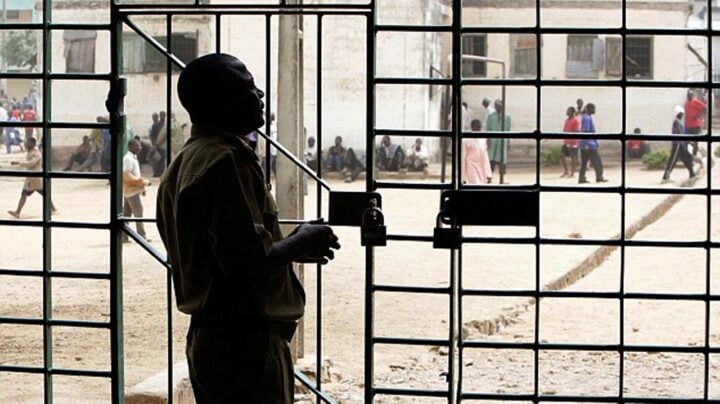Eid Al Fitr: A celebration of gratitude, sharing, and spiritual renewal

Eid Al Fitr, often referred to as the “festival of breaking the fast,” is one of the most significant celebrations in Islam. Eid falls on the first day of the tenth month of the Islamic calendar, called Shawwal; it marks the end of the month of fasting and is observed as a day of joy, gratitude, and reflection. However, Eid Al Fitr carries profound spiritual and social significance beyond its festive atmosphere. It reminds people of the lessons they learnt during Ramadan and emphasises the importance of caring for others through acts such as Zakat Al Fitr.
Ramadan is a month dedicated to fasting, prayer, self-discipline, and spiritual growth. It is the time when Muslims strive to attain God-consciousness (Taqwa) and to purify their souls. The Quran highlights the purpose of fasting in Surah Al Baqarah (2:185): “The month of Ramadan [is that] in which the Quran was revealed, a guidance for the people and clear proofs of guidance and criterion.”
Eid Al Fitr is celebrated as an expression of gratitude to God for granting believers the strength to complete this month-long journey of self-restraint and devotion. It is not merely the end of fasting but a continuation of its lessons — reminding Muslims to carry forward the values of patience, humility, and generosity into their daily lives for the remainder part of the year.
Eid Al Fitr is not merely a day of festivity but a reflection of the transformation achieved through Ramadan. The month of fasting, prayer, and introspection is intended to strengthen one’s relationship with God and reinforce the moral character expected of a believer. Eid serves as an opportunity to engage with the world, embodying the piety attained during Ramadan while carrying forward the lessons of patience, gratitude, and self-restraint.
Eid Al Fitr can also be regarded as the first day when believers are expected to actively apply the principles learnt during Ramadan. The sacrifices made during fasting — abstaining from food, drink, and negative behaviours — are intended to train believers to lead a disciplined life centred on worship and human compassion. Eid serves as a connection between the spiritual practices of Ramadan and their real-life application.
Eid Al Fitr is not merely the conclusion of fasting but rather the commencement of a renewed spiritual journey. The self-discipline cultivated during Ramadan is intended to extend beyond the month, shaping a Muslim’s conduct throughout the year. The essence of fasting — patience, empathy, gratitude, and mindfulness — is intended to influence one’s daily life.
Eid marks the first day of implementing these values in everyday interactions. For instance, giving Zakat Al Fitr before the Eid prayer is a direct reminder that caring for others should not be seasonal but an integral aspect of life. The congregational Eid prayer itself reinforces unity, as Muslims from all walks of life stand shoulder to shoulder, transcending social and economic barriers. The festive gatherings and acts of generosity on Eid encourage a lifestyle where kindness, moderation, and charity remain priorities.
Zakat Al Fitr is a compulsory charity that must be paid prior to performing the Eid prayer. Its purpose is twofold: it purifies the fasting individual from any shortcomings during Ramadan and ensures that even the less fortunate can share in the joys of Eid. In one of the hadith mentioned in Abu Dawud (1609), the Prophet Mohammed (PBUH) emphasised that Zakat Al Fitr serves as purification for the fasting person and provides sustenance for those in need. This act of charity highlights the transition from personal spiritual development to communal well-being, demonstrating that faith must be expressed through actions.
This act underscores a core tenet of Islam: caring for others. By giving Zakat Al Fitr, Muslims are reminded that their wealth is not solely theirs, but a trust from God meant to benefit society. It instils empathy for those in need and reinforces the idea that true piety lies in sharing blessings with others.
Without fulfilling this obligation, one cannot perform the Eid prayer — a powerful reminder that worship cannot be separated from social responsibility. This intertwining of spirituality and charity reflects Islam’s holistic approach to faith.
Throughout history, Eid Al Fitr has been celebrated with cultural richness and religious fervour across various Islamic empires. Each era and region brought its unique customs, while the core principles of gratitude, charity, and unity remained unchanged. During the Rashidun Caliphate, Eid was celebrated, with the Caliphs leading prayers in large congregations. The Umayyad expansion saw larger gatherings and state-organised festivities featuring prayers in open spaces and communal feasts for inclusivity.
Later in the Abbasid era, as described by Al Maqrizi, Eid became grander, particularly in Baghdad and Cairo, where there were colourful markets, musical performances, and poetry recitations. The Caliph led prayers and distributed alms during vibrant processions. The theme of charity remained central. The focus on charity continued through government welfare programmes to support those in need. The Ottomans institutionalised Eid as a state event, with the sultan participating in prayers and distributing charity. One of the most notable traditions was the “Eid greeting ceremony,” where government officials and citizens exchanged well-wishes, reinforcing the social harmony encouraged by Islam.
Eid celebrations differ across cultures yet share common themes of gratitude, togetherness, and generosity. The day begins with Salah Al Eid, followed by sermons that emphasise gratitude and community values. Families prepare special meals, often featuring traditional dishes and invite neighbours and friends to partake in their celebrations. Children receive gifts or money (Eidi), homes are adorned, and communities come alive with joy. In some regions, such as South Asia, individuals prepare for days by purchasing new clothes and making sweets. In others, like Afghanistan or parts of Africa, cultural dances or traditional games enhance the festivities.
Eid Al Fitr continues to be celebrated with a blend of religious devotion and cultural traditions. From grand congregational prayers in Mecca to family feasts in Indonesia, from vibrant bazaars in Turkey to communal gatherings in African villages, the spirit of Eid remains universal.
In a world grappling with economic disparities and humanitarian crises, the message of Eid is more pertinent than ever. The act of starting Eid with charity serves as a stark reminder that social responsibility is not optional but rather an obligation. In contemporary societies, Muslims are encouraged to go beyond Zakat Al Fitr and engage in sustainable charitable efforts, ensuring that the essence of Ramadan extends throughout the year.
While Eid is undoubtedly a time for celebration, its underlying message remains one of compassion and sharing. Giving Zakat Al Fitr ensures that even those facing hardships can enjoy the day with others. This spirit extends beyond monetary aid; it includes visiting relatives, helping neighbours, or simply spreading joy through kind words.
Eid reminds believers that their faith is not confined to rituals but manifests in how they treat others. Fostering unity and generosity within communities serves as a model for how Muslims should live every day — caring for those in need and sharing their blessings.
Eid is a profound spiritual milestone that encapsulates the essence of Ramadan’s teachings. It reflects a Muslim’s commitment to a righteous life. Historically, Eid has been characterised by grandeur and devotion, from the simple congregations of the early Caliphs to the royal festivities of the Ottomans and Mughals. Yet, at its core, Eid remains a day of spiritual renewal and social responsibility. The obligation to give Zakat Al Fitr before the prayer underscores the principle that faith must manifest in acts of compassion.
As the first day of practising Ramadan’s lessons, Eid is a profound reminder that self-discipline, gratitude, and charity should steer a believer’s actions throughout the year. Eid Al Fitr remains a timeless beacon of faith, unity, and moral responsibility in an ever-changing world.
- Raamish Siddiqui is a lawyer, author and Islamic scholar
Sign up for the Daily Briefing
Get the latest news and updates straight to your inbox












